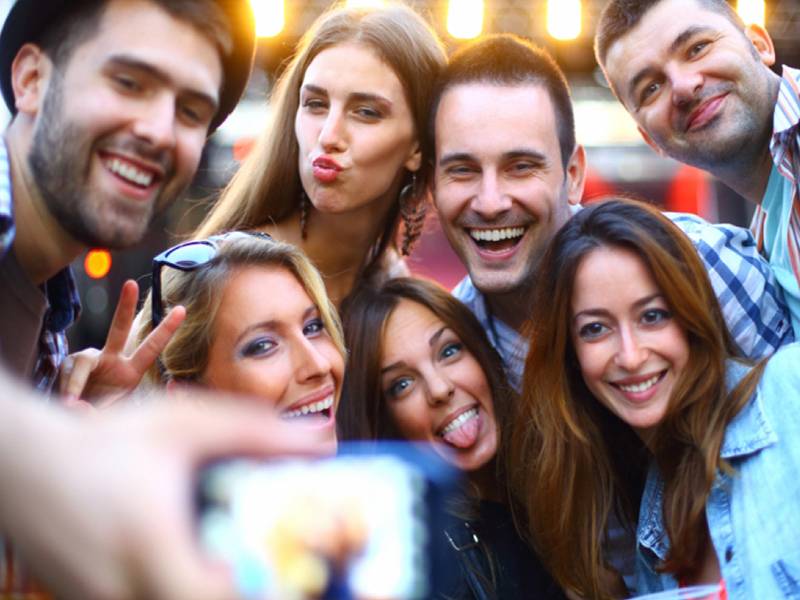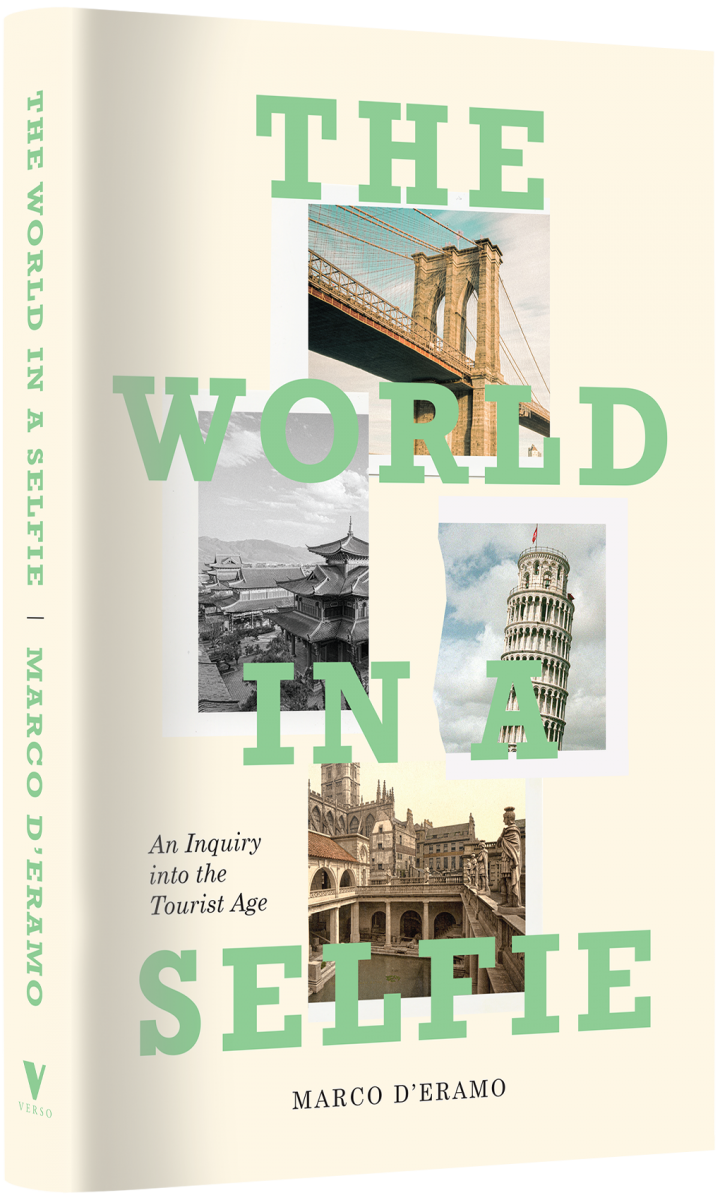Marco d'Eramo: “We are all tourists sneering at other tourists”

At HQ Magazine, we like to talk about the MICE Industry as something disjointed from the larger tourism industry. But we're also open to different points of view and we know that we need more critical thinking about the impact of travelling in general. So, for the 100th edition, we decided to interview a renowned Italian intellectual who wrote a book about what he calls “the Age of Tourism”. Marco d'Eramo is a journalist as well as a social theorist who collaborated with journals like El Pais, La Quinzaine Littéraire, New Left Review and Der Tagesspiegel, and published many essays – the latest being The World in a Selfie. An Inquiry into the Tourist Age (Verso, 2021).
How did you get to write a book about tourism?
Tourism belongs to that category of social phenomena, like sport or advertising, which are ubiquitous, familiar, but always undigested, unelaborated: they evade questions, neutralise reflection. As in the case of sport and advertising, the bibliography on tourism is now endless, but conceptual elaboration is fragmentary: texts abound, but new ideas are small nuggets in a huge mass of dirt. And truly original contributions can be counted on the fingers of one's hands.
At the end of the day, there are only two types of texts on tourism: texts by tourism professionals, which are internal to the sector, promotional, and never question its categories; and external texts, which snub it. Because tourism is difficult to take seriously, since people confuse tourism with tourists… and tourists are always a bit funny, they are always literally out of place. We always look down on them and blame them for the harm tourism brings; it's as if we blamed the workers for the pollution caused by factories. But we are all tourists sneering at other tourists.
Why do you believe we live in the “Age of Tourism”?
The creation of tourism required two revolutions to take place. A technological one, with the revolution in transport and communications that made travel possible, cheap and quick. And a social revolution, which created the travellers themselves. This was the product of hard-fought, interminable struggles to win paid time off. For human beings to become tourists, it isn't enough for them to have free time alone — after all, the unemployed have plenty of that. Never before in human history did a significant share of the population enjoy income in periods of not-working. Today almost all of tourists are on paid holidays or on a pension.
And then you have to think that tourism has an immaterial goal: what you want is to see the Parthenon at sunset or the Machu Picchu at dawn, but to get this immaterial goal, tourism needs a very heavy, very material, huge infrastructure. In a sense, tourism is an industry that triggers all other industries. The pandemic demonstrated just what a crucial role tourism plays. That's not only true of countries with a particular niche for tourism like Italy, Spain and Austria, where this industry contributes around a sixth of GDP and employment numbers. Tourism is decisive for the global economy as a whole. Without tourism, hotels and restaurants shut down, along with all the economic activities connected to hospitality. The aircraft industry disappears, the auto trade slumps, cruise-ship building sinks, and construction receives a heavy blow, too. When these trades collapse, they bring down steelworks, cement production and electronics with them. Four years ago, when I wrote in my book The World in a Selfie that tourism is this century's most important industry, I was taken for a blowhard who loves, well, making silly claims. But if this industry is usually belittled, COVID-19 has shown just how essential it really is.
Then there is also a subjective factor: the technological revolution and the social revolution transformed not only our lives, but also our intellectual categories. They made the possibility of travel the key element of our idea of freedom. With the pandemic, we felt how much we were missing not being able to get a change of scenery and go anywhere else. The will to travel is a demand for freedom.
In the West, we hadn't realised this before COVID-19. We ought to have known as much, given that in East Germany the demand for tourist visas was the spark that triggered the fall of the Berlin Wall in 1989. We hadn't realised that the need to move and experience different horizons was so intensely political. Only the repeated, prolonged lockdown, with the second and third waves of the pandemic, made us feel the impossibility of travelling on our own skin, a prison around us. For the first time, we were in the same shoes as the East Germans. To stop citizens from being tourists is to deny them a key element of their idea of freedom. So, you see, we live in the age of tourism because tourism shapes both our objectivity — economic living conditions — and our subjectivity — our idea of freedom.
 In your book (left side), you talk about the concept of “tourist city” and how is a certain kind of tourism “subtly” killing cities, to paraphrase you? Can you explain?
In your book (left side), you talk about the concept of “tourist city” and how is a certain kind of tourism “subtly” killing cities, to paraphrase you? Can you explain?
To make a long story short, all our cities have transformed the centre of the town in a tourism district, which is a specialised form of entertainment district. That’s why at the end of the day, when tourists leave these districts become dead towns. We saw it during the pandemic — without tourists our city centres were deserted, dead, ghostly.
A city becomes a tourist city when it has lost the other industries and economic activities that made it live. Venice discovered tourism already at the end of the 16th century, when it was declining as a world commercial power. It was then that the Venetians focused on Carnival, so much so that after a century the Venetian Carnival no longer lasted a month, like all carnivals in the world, but six months of the year. So, in the 18th century Venice promised young noblemen from all over Europe a holiday full of culture, good food, and lots of sex, just like the carnival in Rio today. Today, port cities are all recycling themselves by turning their dismissed ports into tourist waterfronts. When they have lost their other activities, cities turn into a museum of themselves.
How is it possible to preserve a real diversity as well as an “authentic authenticity” in your opinion?
You know, authenticity is a nostalgic concept — you never ask if your home cooking is “authentic”. The problem of “authenticity” arises only when the “authentic” is in danger, when it is on the way of disappearing. That’s the dilemma of tourism: the tourist is desperately searching for the authentic, but she knows very well that if she reaches it, it is because the authentic has already turned into the inauthentic (the mere presence of the tourist makes it so). That is why every tourist's dream is to be in a place without tourists. In short, the tourist wants to be in a place without himself.
Some cities go so far as branding themselves as “convention cities”, like Las Vegas. Do you think there's a difference between this business travel and leisure tourism?
Tourism is a multitasking activity. No one goes to a place for only one reason, or then they are not a tourist. For example, the holidaymaker who goes to Greece wants to relax by the sea, but also to do some culture and visit some ancient ruins. Business tourism respects the logic of multitasking because it wants to combine professional activity (scientific meetings, managerial conventions) with recreational activities in the true sense of the word such as in Las Vegas, or just escaping the routine and have a little fun. On the other hand, business tourism is more segregated than other types of tourism because wherever you go, you always meet the same people, your colleagues. A universe of colleagues. The drama of conventions is that the only human type present is the colleague, which makes them a little melancholic despite all the efforts. When you go to a restaurant, you immediately recognise the table of convention goers.









